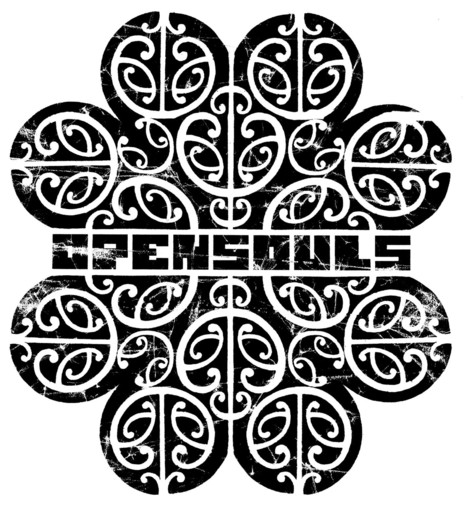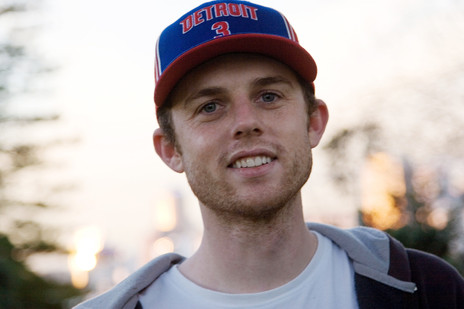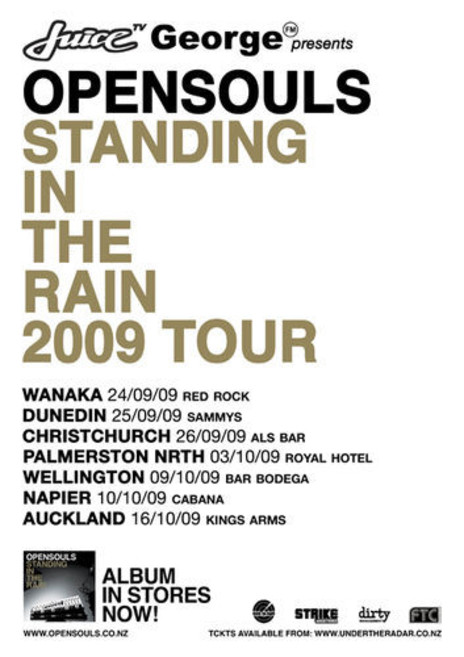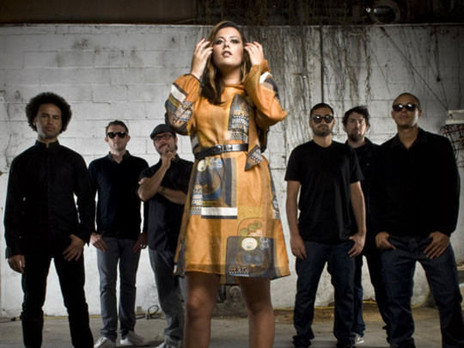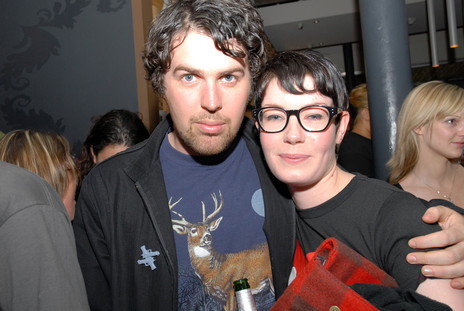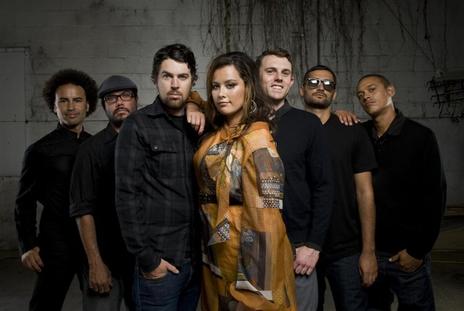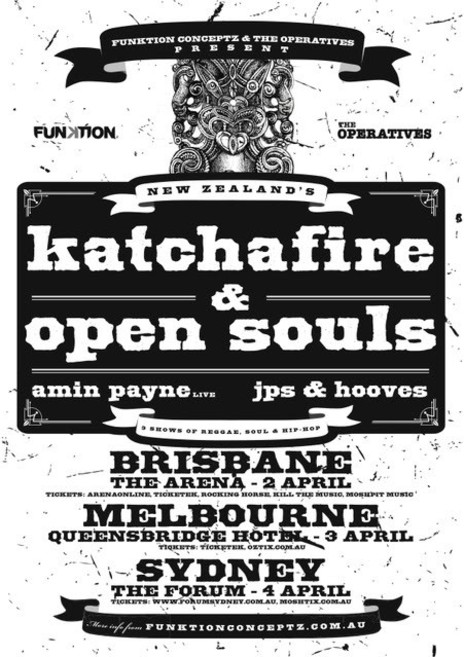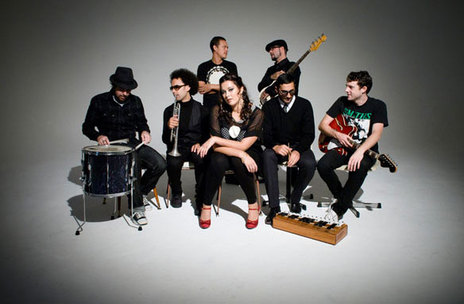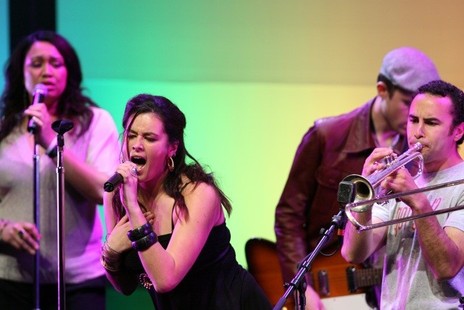Toy then began attending hardcore/punk gigs in the city with two brothers he’d befriended, Matt and Evan Short (Concord Dawn). He ventured further into the scene by forming his own group, So To Speak, though he retained his father’s love of jazz and decided to study guitar at the University of Auckland. He did two years, before quitting to tour Australia with punk act Sommerset. Yet his most enduring connection over this period was with drummer, Julien Dyne.
“Matt Perry, who’d been in my Rockquest band, introduced me to Julien when he moved up from Wellington to study at Elam. Julien’s dad is Paul Dyne, a killer jazz bass player, who teaches at university down there. I used to go to Elam and hang out and listen to jazz records. We just played bad fusion for a while, under the name Louvre. We were also called Motron. Cam Allen [saxophone] and Chip Matthews [bass] started playing with us back then. Matt Short [bass] came and went. We’d play at Cause Celebre and one of the bars in DeBretts or sometimes – just to get paid – we’d play Deschlers.”
Toy was drawn in another musical direction by his friend, Dominic Hoey (aka Tourettes), who’d also been involved in the Auckland hardcore scene (as drummer for Witness). However, Hoey had returned from living in Wellington with the nucleus of a hip hop crew called 5th Floor. Hoey brought Toy and Dyne on board to create a live version of the group, alongside MC G Whizz (Glen Kowalski), DJ Buttafingaz (Harlin Davey), and MC Bjorn Petersen. Yet the group were pulling in different directions (with Kowalski kicked out once he got a job on music television) and Hoey eventually decided to try his luck in Melbourne as a solo act instead.
In 2002, the remaining members of the group formed Opensouls, hoping to incorporate jazz.
In 2002, the remaining members of the group formed Opensouls, hoping to incorporate jazz. As they played shows, they began drawing more collaborators into the fold, as Toy recalls:
“I’d first met [keyboardist] Steph Brown at jazz school. Chip Matthews had been playing with Godfrey de Grut since they’d been in The New Loungehead [both also played in Che Fu’s The Krates]. I started playing with Chip in Godfrey’s new band, Menopantyboy. Isaac Aesili [trumpet] had just moved up from Christchurch. I remember meeting him at Galatos upstairs and asking him if he’d join the band but he was still playing as Solaa and said he was really busy. Then a week later, he was in the band! Isaac was a really good fit.”
The Opensouls created an instant buzz in the Auckland scene, especially for their packed shows at Khuja Lounge, and they soon extended their reach to Wellington where they met like-minded groups such as Fat Freddy’s Drop and TrinityRoots.
Having so many talented group members did have the downside that some were drawn away to other projects. At first, the group was fronted by singer Hollie Smith, but she left to pursue a solo career (Toy played guitar on her first release and went on to produce her debut album). Fortunately, MC Bjorn was also a soulful singer so the group continued on regardless. Cam Allen also left for some time – deciding to perform on a cruise ship as a way to relocate to New York – so Dyne’s father put them in touch with his former student, Scott Towers (this connection also led to Joe Lindsay from Fat Freddy’s working with the group).
Despite providing an enthralling live spectacle, capturing the group’s energy in a recording studio initially proved difficult. They did an early session with Rikki Morris and Lewis McCallum, but Toy felt that simply trying to put down their live sound didn’t produce the best results:
“Every time we recorded the live band, it never sounded right. It sounded too naïve, too jazzy. So me and Julien both got PCs and started making our own beats. He’d play drums and then we’d sample them and put them into an MPC. If I made the beats, then he’d usually have input in other areas by playing some guitar or directing how the sound of the recording should go, acting like a producer. Sometimes I’d just be the instrumentalist and he’d tell me what to play, which worked really well. Because he was an artist, it felt like he brought a visual approach to it – he always had a better idea of the whole picture. I could come up with parts and play them, but he had a better overall vision. That’s why we worked well together.”
Dyne and Toy were also inspired by the collaborative approach of Fat Freddy’s Drop and TrinityRoots, so tried to allow space for group members to contribute their own ideas, making for an interesting amalgam of influences on their early recordings. In 2003, Toy was accepted to the Red Bull Academy in Cape Town, South Africa, and took six early tracks with him to play to other attendees. He met Michael Reinboth, who ran the influential German soul jazz label, Compost Records, which led to an Opensouls song (‘In Your Hands’) appearing on their compilation, Soulsearching – The Compost Radio Show Vol.1 (2005).
The Red Bull Academy would continue to provide the group with networking possibilities and inspiration in the years to come with Dyne attending in 2004 when it was held in Rome and Aesili in 2005 when it was held in Seattle (Dyne also returned for an alumni event in 2007).
Back in Auckland, Toy was introduced to Tyra Hammond, who would become central to Opensouls in the years that followed.
Back in Auckland, Toy was introduced to Tyra Hammond, who would become central to Opensouls in the years that followed.
“Tyra had just moved up from Christchurch to study and help out [her cousin] Ladi6 and Parks [aka Brent Park], who’d just had their baby. I’d been playing bass with Ladi and Parks in their group, Verse Two, until I got too busy. Parks said, ‘you should do some music with Tyra, she’s amazing.’ I’d heard Sheelahroc, but I hadn’t realised Tyra was in it. Tyra came in and we got along really well.”
Tyra brought in a strong funk influence and this inspired the instrument-playing members of Opensouls to create a side group, Tyra and the Tornadoes, with monthly gigs at the Rising Sun (arranged by Tyne and Towers). Meanwhile, Toy had been listening to a compilation of instrumental versions of funk songs and decided to write something with a similar vibe to the cover of ‘Use Me’ by Bill Withers that was on it. Tyra wrote lyrics and sang on it, while Ladi was brought in to do backing vocals. The resulting song was ‘Turn It Up’, which was a key track for the group, eventually released in the UK by Freestyle Records.
In the meantime, The Opensouls had also created their own label, From The Crate Records, to release their work and that of the Tornadoes (fortunately Toy’s mother was an accountant!). The Opensouls also brought on board Toby Larmer (manager of TrinityRoots) to help them with the release of their debut album, Kaleidoscope (2006), which charted at No.29. They received a nomination for Best Urban/Hip Hop Album at the New Zealand Music Awards, but also managed to fit into theNew Zealand roots scene and played large festivals such as Raglan’s Soundsplash and the Kaikoura Roots Festival.
Despite the growing profile of the group, the individual members found themselves increasingly busy with their other projects. Steph Brown moved to New York and started her own act, LIPS (later winning an Apra Silver Scroll Award for ‘Everything To Me’ in 2012). Julien Dyne’s solo work was gaining pace (his first solo EP came out in 2007), while Chip Matthews had begun recording and performing with Anika Moa. Scott Towers joined Fat Freddy’s Drop in 2007, though fortunately Cam Allen was back from New York by this stage, so could retake his original place.
The result of these distractions was that when it came time to record their next album, Toy found that he and Hammond that were left to do most of the songwriting:
“The tracks that had been most successful for us had been the ones that were primarily based on singing rather than rapping. Especially overseas. I think that was because Dallas from Fat Freddy’s was really hot at that time, so they wanted something connected to that but as soon as they heard the rap, they were like – ‘nah! You can’t do this!’ The only track with Bjorn on it that really had a big effect was the one where he was singing on it. So we decided – let’s do an album of songs. Plus all the funk stuff that we’d been doing as Tyra and the Tornadoes had an effect as well.”
This allowed them to fully explore Hammond’s remarkable singing ability. One example being the track, ‘Leave the Light On’, which Toy wrote purposefully to showcase the more bluesy aspect of her voice. Yet other members did contribute ideas when they could – the most notable example being the backing music provided by Dyne and Davey for the fan-favourite, ‘Telephone Song’.
The resulting album, Standing In The Rain (2009), reached No.8 on the charts, partly due to the hard work of their management team, Callum August and Ingrid Bennie from Dirty Records. August also managed to get the album released in Germany on Jakarta Records, while Dyne used his connections to arrange a release in Japan on Wonderful Noise. Toy was excited to see photos of the CD on display on Tokyo and equally blown away when an overseas touring opportunity came out of the blue:
“There was a guy in Toronto who was a big fan, who had all the seven-inch records that we’d released. He put it to the promoters of the Saskatchewan Jazz Festival that he’d organise us for the event. Then Callum and him organised a tour to go with it – about a dozen shows that took us across the width of Canada. Tyra was five months pregnant and it was the middle of summer – what an absolute trouper! In a van with no air-conditioning. I couldn’t even imagine that ...
“We played before The Roots at the jazz festival. It was held in a big park and the artists stayed in a hotel that overlooked it from above. When we were playing, we looked up and all the guys from The Roots were hanging out the window watching us. Then some of them came down to talk to us, but I was too shy. I hate talking to my heroes. Kirk Knight had a good chat with Chip. It was really cool to open for them, but they were just on another level of musicianship for that genre. It made us feel minor league. Later in the tour, we went back to Saskatoon and – off the back of that Roots show – sold out two nights in a row.”
The tour ended up being a last hurrah for the group. Internal tensions had been growing over almost a decade of playing together and the stress of trying to drag everyone away from their own projects to work on Opensouls material was taking the fun out of the group. A mutual decision was made to bring things to an end.
In the wake of the group, a huge amount of new projects emerged from its various members.
In the wake of the group, a huge amount of new projects emerged from its various members. Julien Dyne went solo and released work through esteemed UK label, BBE, while continuing to work regularly with Ladi6. Isaac Aesili released a solo album (Eye Know, 2009) before starting a run of new groups: Funkomunity, Karlmarx, and Sorceress (as well as playing live in bands: The Recloose Live Band, Shapeshifter, House Of Shem, TrinityRoots, and Eru Dangerspiel). Chip Matthews has continued to be in-demand as a bass player, working with Anna Coddington and Home Brew among many others. Tyra Hammond started her own solo career, releasing a self-titled EP in 2015 (produced by Toy).
Jeremy Toy kept up his record of taking unusual paths forward by starting dream-pop group, She’s So Rad, with Anji Sami (a direction he traces back to listening to My Bloody Valentine’s Loveless in the van while on tour with Sommerset). Toy’s musical output was interrupted when he received a brain injury in 2013, after being king-hit by a drunk patron at a bar. In order to recuperate, he decided to return to making beats and started a project to record a new version of J Dilla’s landmark hip hop album, Donuts (2006). Toy’s version was released as Basement Donuts (2016) by Leonard Charles on Hit and Run in LA and Wonderful Noise in Japan, with many overseas plaudits including from Dilla’s turntablist, J Rocc (and an opportunity to work with one of Dilla’s preferred MCs, Guilty Simpson).
Fortunately the members of Opensouls have remained friends over the years and Toy has enjoyed the occasional opportunities they’ve had to get back together for reunion shows.
“The gigs are really good when we play now. We try to only have one rehearsal and keep it as spontaneous as possible. We can all easily handle the music that we made back then – we’re all good enough musicians. The gigs are real fun in that respect. But really it’s just nice to get together after all this time.”
